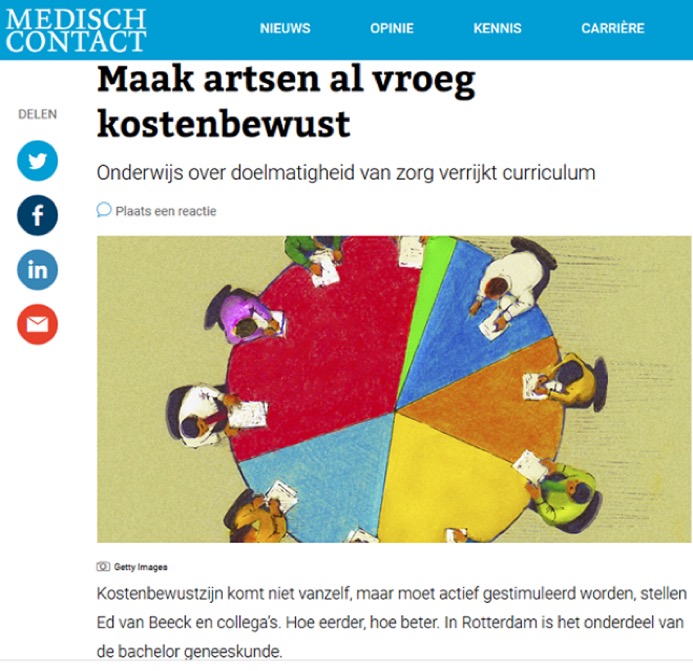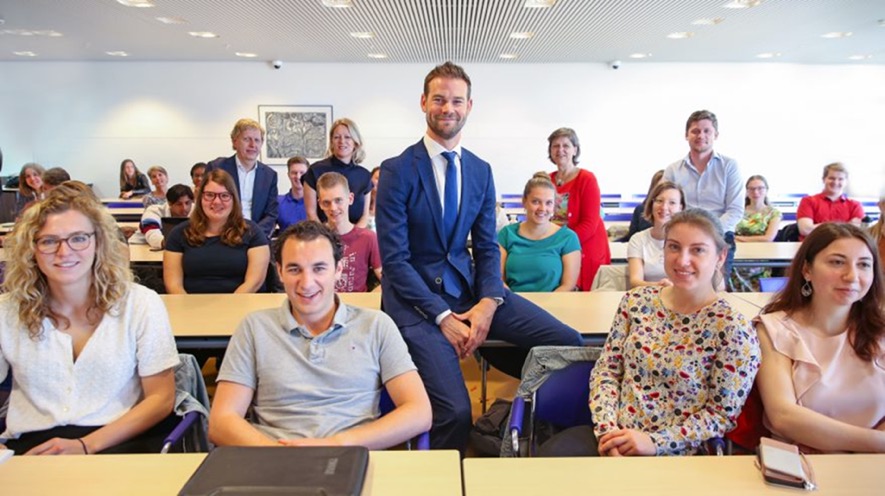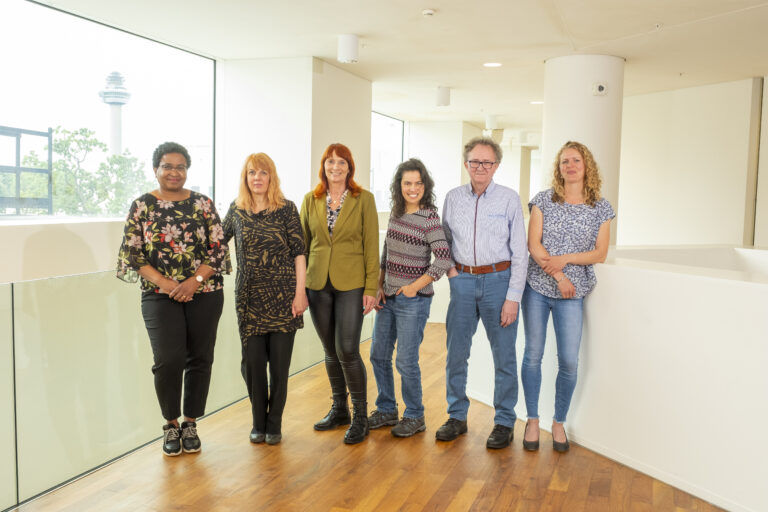Education and training
Future physicians will face a considerable increase in the numbers of patients with multiple chronic diseases and will need skills in teamwork, shared decision-making, prevention and population health, as well as in maintaining the quality, safety and efficacy of healthcare.
It is internationally recognised that current healthcare systems have to adapt to cope with the most important health problems of the 21st century. Ageing societies, and a substantial increase in the number of patients with (multiple) chronic diseases (often related to lifestyle and the environment and amenable to prevention), make a strong demand for alternative healthcare models. Future physicians will need to be highly skilled team players who can function well in a system, with more focus on prevention and general care, participation as main outcome, and able to bridge the gap between the medical and social domains.
In 2018-2019 we made major progress in adaptations of the Erasmus MC curriculum to meet these new demands. In close collaboration with the department of General Practice, the municipality of Rotterdam and other external and internal partners we implemented a novel 4-week master course “general practice and social medicine” focusing on the aforementioned aspects (5th year). And we created a coalition with the municipality of Rotterdam to develop a novel internship social medicine to provide real-world insight in social determinants and solutions for health problems at both the individual and population level(5th year) . We also finalised the implementation of the ‘Collaboration for Optimal Care and Prevention’ (COCP, 1st -6th year) trajectory, consisting of training in interprofessional collaboration, shared decision-making, prevention and population health, as well as the quality, safety and efficiency of healthcare.
In June 2019 the alderman for public health of Rotterdam municipality, Sven de Langen, and the head of our department, Lex Burdorf provided a joint opening lecture of our part the of the novel master course on general practice and social medicine. This marks the start of innovating the medical curriculum towards delivering physicians who feel responsible for prevention and social care and are capable to tackle often complex individual and group problems in collaboration with other professionals in both the medical and social domain.
The novel course focuses on the complexity of health problems in interaction with social determinants and health systems functioning and prepares our students to address those problems during their internships general practice and social medicine and during their future careers. The coalition between Erasmus MC and the municipality has created novel opportunities for 3-week internships in social medicine. Each year 100 medical students get the chance to be involved in teamwork at several sociomedical and social services (e.g. the Rotterdam streetdoctor project and the social neighbourhood teams) to improve the health of citizens of Rotterdam.
Quote from Scanner December 2019, Medical student: “I think it is an important part of medicine education. We mainly learn to approach cause and treatment of diseases physically. However, it is good to realize that how “healthy” someone is is determined by many factors, such as socioeconomic status, education level, work and ethnicity. In addition, there are a great number of social institutions in the Netherlands that offer help in all kinds of areas, such as youth care facilities, language and finances. It is good to be aware of this, so that later as a doctor I know where I can refer my patients. ”
- Theme: Physician and society. Theoretical education on the principles and practice of prevention and population health and the functioning of healthcare systems (Bachelor, year 3)
- Community project: Student group projects commissioned by societal organisations to provide answers to relevant questions in public health practice and develop health advocacy skills (Bachelor, year 3)
- Collaboration for Optimal Care and Prevention (COCP) trajectory: team training. Interprofessional scenario training sessions, supported by e-modules and a serious game (Team Up) and closed by assessment of individual performance as a team player (Bachelor year 2, Master year 4 and 5)


